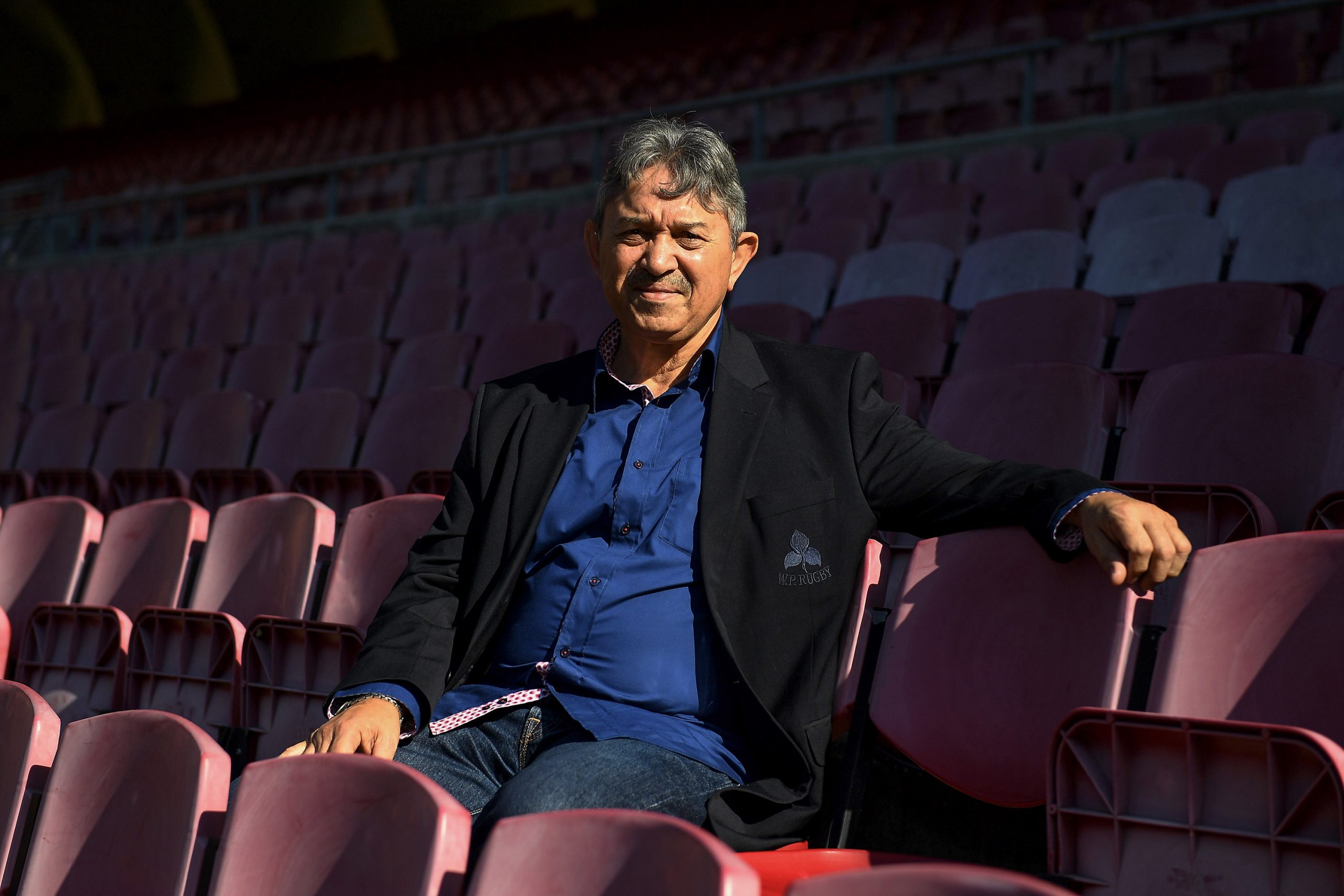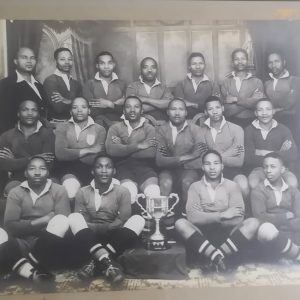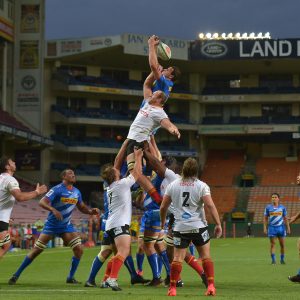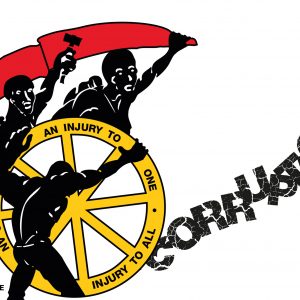The bleak future of Western Province Rugby
The oldest rugby union in the country is at a crossroads, with its future uncertain because of Covid-19 and the decisions made by its controversial president.
Author:
28 November 2020

Zelt Marais, the embattled president of the Western Province Rugby Football Union (WPRFU), is either the dealmaker of the century or a man standing atop a teetering house of cards. Either way, the next few weeks could determine if South Africa’s oldest rugby union has a chance of surviving after Covid-19 or if it will fade into obscurity because of poor management.
It’s still not certain if a deal with potential American investor MVM Holdings and its South Africa-born head Marco Masotti will come to pass, especially as it seems the union and Marais have little appetite when it comes to giving up control of rugby in the province.
All indications are that the president and his elected amateur officials are drawing the process out so it dies an inevitable death. This isn’t new for Marais, who was elected as a result of the Stormers’ failure on the field and the hangover from Western Province’s business arm liquidating in 2016. Marais was the “businessman” who would come and save Province, it was claimed. Scrutiny revealed that he had worked as a tax adviser in a large bank before resigning to take the helm at Province full-time.
Since then, there have been too many newspaper reports to count on the management style of the WPRFU president. Almost every independent director at the company has departed, the chief executive left and allegations have stretched from cronyism to racism as Marais consolidated his power.
He has also done a strange deal to redevelop Newlands Stadium involving a little-known property company, walked away from a similar deal with banking giant Investec and almost tripled the union’s debt from R40 million owed to investment company Remgro to R112 million owed to new property partner Flyt Property Investment.
Related article:
Now, with concerns about cash flow, Marais seems to be looking for a way out of the Flyt deal and has been shunning Masotti’s overtures for a controlling stake in the business arm of Western Province. All of which, if it goes belly up, could see the oldest and arguably most historic rugby entity in South Africa reduced to a bit player in a matter of months. In this scenario, there will be court cases and a plethora of World Cup-winning Springboks will more than likely walk away, leaving the union to fend for themselves in a situation that easily could have been avoided.
To understand the WPRFU requires a mindset of its own. When the business arm was liquidated in 2016, ostensibly to get out of a bad contract with advertising company Aerios – for which Aerios claims there is still unfinished litigation – it converted Remgro’s 25% shareholding into a R40 million loan.
Remgro was more than fair in aiding Western Province. But this relationship has now soured completely and Remgro has invested in rivals the Blue Bulls, along with billionaire Patrice Motsepe.
A history of infighting
Infighting in the union is not unusual and there have been some major battles over the years. But the downward spiral started with a “dossier” of allegations of racism and mistreatment submitted by former Blitzboks coach Paul Treu, then the Stormers assistant coach.
The fallout was massive and while an independent law firm found “no basis” for the claims, it set the warring parties against each other. Marais and the WPRFU, which now owned 100% of the new entity, sided with Treu behind the scenes. This helped elevate Marais to the presidency ahead of seasoned former Bok selector Peter Jooste.
But the Stormers fallout continued. Robbie Fleck was replaced by John Dobson as coach, Gert Smal saw the writing on the wall and left. A failed attempt to put Treu into the director of coaching position saw tempers simmer for much of 2019.
Still, the WPRFU was a strong entity. Having accumulated assets worth more than R500 million over the years in the form of properties, and with 100% control of business entity Western Province Professional Rugby (WPPR), it was always going to want to push through its plans.
Western Province chief executive Paul Zacks had put together a firm plan with Investec to redevelop Newlands Stadium. And while Marais disagreed with the plan, it seemed – with the WPRFU being R40 million in the red – a good opportunity to secure an income stream that would last in perpetuity, with a partner that was respected worldwide.
But when it came to signing the final agreement, Marais balked. Insiders tell how he suddenly demanded a “guaranteed income” for the 99-year lease. The banking giant was stunned and attempted to explain that nobody in property development would be able to “guarantee” the income over such a long period. It offered projections, but Marais wasn’t interested.
Instead, a pattern emerged of the president reneging on deals at the last minute to look for something better. Investec sent a letter threatening litigation, particularly as it had fronted Western Province R58 million to settle the Remgro debt, which had ballooned as the WPRFU wasn’t making the interest payments. But so far, Investec has not taken legal action.
Related article:
The Investec deal, which took more than two years to negotiate, was replaced a few weeks later with a deal with Flyt. Marais called it “the deal of the century” and bragged about it being a goldmine, as Province would get 50% of the profits.
Taking just 60 days to do a deal for a development worth, according to industry experts, around R2 billion may have raised red flags, but property experts were quick to point out that it was a dream deal for the developers. It could turn out to be a nightmare for the WPRFU, though.
For starters, the union signed away its R400 million property portfolio as security. That in itself should have raised major concerns. In return, the WPRFU got a R112 million cash injection to pay off Investec and Remgro. Flyt would have control of the new development company that would be set up, which would control the majority of the directors. This meant that, with Western Province sharing in the profits at the end, the road was open for costs to be loaded on to the development.
As one property developer put it, what incentive is there for Flyt to ensure a profit? It is receiving interest at prime on its loan, which has to be paid back within four years, and can now also charge a management fee. The industry standard for this is 5%, or in this case R100 million. Fees can be loaded and costs can escalate, substantially diminishing any WPRFU profits – and the union can do little about it.
‘A much better deal’
The biggest risk with property development is uncertainty about when a profit will be realised. Industry experts say that if all the boxes are ticked and rezoning issues sorted, the soonest the WPRFU will see any profit is in seven to 10 years’ time. That is, if the local community doesn’t protest, or force traffic or environmental impact studies. It could be years before the union realises any returns.
Additionally, the agreement stipulates that the loan be paid back within four years. Marais has admitted that if the WPRFU cannot pay it back, the interest will be added to the loan account until the union starts seeing profits. This could leave it with massive debt if the property takes the expected seven to 10 years to complete.
“Unlike previous loan and redevelopment arrangements, the WPRFU will have a 50% share in all economic benefits derived from the future development of the site. If the development goes ahead, the proceeds will enable it [to] pay all loans, including interest, and will also enable the WPRFU to invest in clubs in our broader communities over the longer term. This is clearly a much better deal and will guarantee future cash flow for the union,” Marais said when asked about this potential nightmare situation.
While all of this was happening on the amateur side of the union, WPPR desperately needed a cash injection. Still absent a chief executive, an interim committee made up of Marais, union executive committee member Kevin Kiewitz and two independent directors – former eMedia Holdings chief executive Andre van der Veen and former Investec Global marketing head Raymond van Niekerk – was running the business arm.
The board tasked Van der Veen with finding an investor and he returned with MVM Holdings, a loose consortium of ex-South African interests and American investors, which was willing to buy a controlling equity share for $6 million (about R90 million). Of this, $2 million would go straight to the WPRFU and the remaining $4 million would go to WPPR.
Masotti, a New York-based investment lawyer who grew up in Amanzimtoti in KwaZulu-Natal, heads up the consortium, which includes Jay-Z-owned entertainment agency ROC Nation. But once again Marais threw a spanner in the works, vowing not to give up control of “rugby matters” while still wanting the investment. But with an amount that large, any investor is unlikely to allow it to be managed without any control over how it is used. Without it, though, some insiders suggest that the business arm will run out of cash within months.
This was all playing out while Marais further consolidated his power a month ago, when he declined to renew either Van der Veen’s term as independent board director or that of board chair Johan van der Merwe.
Kiewitz had already resigned in disgust when the Investec deal fell through, and Van Niekerk resigned shortly afterwards in protest. Marais then invited former Western Cape premier Ebrahim Rasool to be chair, adding a political slant to the board.
Van Niekerk later told the Rapport newspaper that “these are the least impressive people I have ever worked with”.
Related article:
It wasn’t long before Hennie Heymans, the chief executive of DHL, Western Province and the Stormers’ biggest sponsor, and Suzanne Stevens, the chief executive of the other major sponsor, Brightrock, resigned from the board in protest against “the direction the board is taking”. That left just one independent director, Makkie Isaacs. The board has since been joined by two new appointees, brand expert Solly Moeng and Lauren Benjamin, the current Head of Human Resources at Sanlam Investments.
Rapport reported concerns from insiders that it was a purge of white directors, with only one white board member remaining. The interim committee that was overseeing the WPRFU’s day-to-day affairs now only has one member: Marais.
Players have held several private meetings and confronted Marais on the future of the union. Only eight of the contracted group have contracts that stretch past the British and Irish Lions tour next season, and collectively the players have made a decision not to negotiate until there is certainty about the financial future of Western Province’s business arm.
But Marais denies this, saying the players are behind him and asked him to find another investor. Masotti was in Cape Town earlier in November and, along with ROC Nation’s Michael Yormark, met with the Province delegation. But he left on 17 November without any progress being made.
“WP haven’t even shared due diligence information that we requested,” Yormark told the Daily Maverick 168 newspaper before the meeting. “We have waited for two months for them to share their financials so that we could go through them to clearly understand what the club’s financial position is. They won’t even share that information.”
Previously, when Marais was confronted with the allegation that he was drawing out the deal and not really interested in the investment, he responded with anger. “Which nameless cowards are making these allegations? We are negotiating the best deal for WP Rugby in order to ensure a long sustainable future for all affected parties. The players have encouraged the shareholder to also look at other deals and then to select the best deal. In any event, the shareholder representatives have a fiduciary duty to act in the best interest of the company and the shareholder.”
After the meeting, Western Province Rugby ironically put the situation into perspective. In a strange sentence attributed to Masotti, it said: “Furthermore, we wish to retract everything that was communicated through the media over the last four months.” But Masotti has confirmed that he never agreed to these words in the statement and, strangely, Western Province sent out the same “adjusted” press release on Sunday 22 November, with this line omitted.
Related article:
But why was it included without permission in the first place? And who put it in? One explanation may be that it was to give Western Province cover with the amateur clubs, which have been fed several lines of misinformation in recent months. First, they were told the investment was a loan. Then, that it included Western Province’s property portfolio. Both of which were untrue. The line could have been included to “counter” the narrative in the media by MVM Holdings, which was starting to lead to some uncomfortable questions in the WPRFU’s ranks.
Recently, Villager Rugby Club, one of the oldest in the country, said it was considering legal options as Marais had balked on a promise to upgrade the field as part of one of the developments.
If the deal for Newlands Stadium breaks down, it has to pay back R112 million plus interest to Flyt almost immediately. Considering the union’s cash flow was poor before Covid-19 struck, and it couldn’t finance a R40 million loan for Remgro, questions abound about how the WPRFU will settle this debt.
When Marais was contacted for comment on the matter he said, “WP Rugby is definitely moving in the right direction.” He also attached a statement by Western Cape premier Alan Winde on the Covid-19 situation which had nothing to do with the question.




